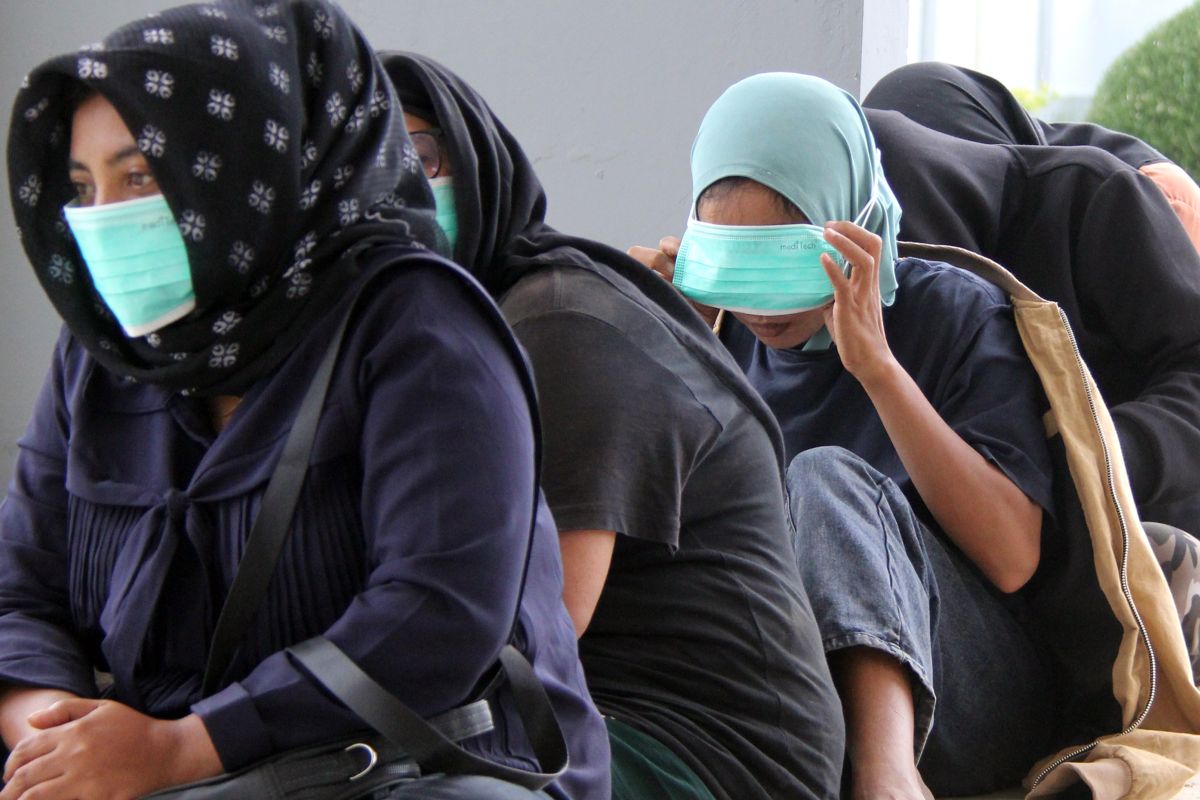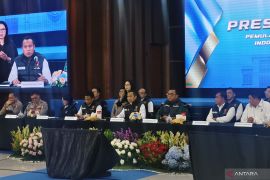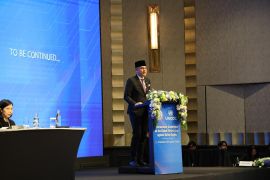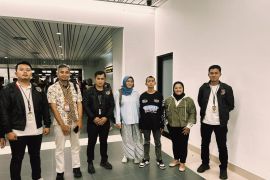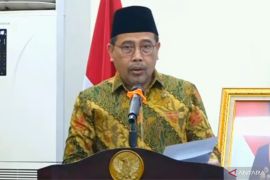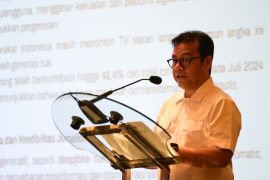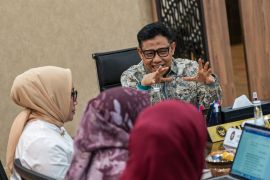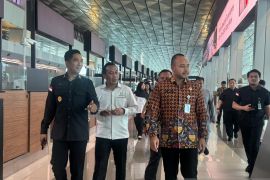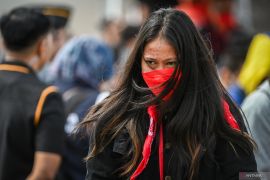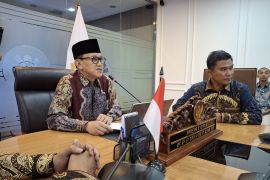TPPO is a transnational crime that runs counter to human dignity and human rights (HAM).
The number of fatalities due to TPPO cannot be underestimated, especially the Indonesian migrant workers (PMI) from East Nusa Tenggara (NTT). During the 2017-2022 period, as many as 624 PMI from this province, most of whom were victims of TPPO, lost their lives.
TPPO has become an emergency matter that should be resolved immediately through preemptive, preventive, and repressive measures.
According to its duties and functions based on the mandate of Law Number 39 of 1999 concerning Human Rights, the National Commission on Human Rights (Komnas HAM) also stepped in by forming a special team to handle TPPO in 2023 and launching the results of their study in Labuan Bajo, NTT, on June 27, 2024.
New TPPO scheme
Before eradicating TPPO, it becomes increasingly important to study the form of this crime. With time, the mode of human trafficking also changes.
The typology of TPPO crimes identified by Komnas HAM is sexual exploitation, forced brides, forced labor, modern slavery, and organ trafficking. A new mode of TPPO crime that is becoming increasingly common is online scamming or online fraud.
This fraudulent mode began to emerge around 2021 since the reopening of borders between countries that had been closed due to the pandemic. Based on data from the Ministry of Foreign Affairs, the countries involved are Cambodia, Myanmar, the Philippines, Laos, and Thailand.
Komnas HAM identified online scamming as TPPO since it fulfills the elements of the practice, namely the element of exploitation. The working hours for online fraud exceed reasonable operating hours as regulated in law (UU). In addition, forced labor that leads to slavery is found in online fraudulent practices.
The perpetrator's modus operandi is to recruit victims through advertisements on social media. In plain sight, victims were seen to be legally working abroad.
However, when they arrived at the work location, the victims received treatment that violated human rights, including experiencing verbal threats, being held captive in the company premises or area, being forced to work, and also being compelled to commit fraud via Indonesian digital platforms by creating fake accounts and stealing other people's identities.
The Ministry of Foreign Affairs recorded 3,428 cases of online fraud involving Indonesian citizens from 2020 to 2023, with 40 percent of the cases indicated to be TPPO. Thousands of cases were recorded in eight countries, with the most in Cambodia, Myanmar, and the Philippines. Many victims came from North Sumatra, North Sulawesi, and West Kalimantan.
Conventional TPPO must not escape attention. East Nusa Tenggara (NTT) and West Kalimantan are two provinces that have become a cause for concern for Komnas HAM.
As many as 624 migrant workers from NTT died during the 2017-2022 period, with most of them being victims of TPPO.
West Kalimantan has turned out to be a transit area prone to being a route for the mobility of illegal workers. Moreover, the phenomenon of the mail-order bride or forced bride for Taiwan and China has started to emerge.
In this phenomenon, the victim is promised marriage to an established man from China and a guaranteed and secure life. However, in reality, after marriage, victims are exploited as domestic workers or only become providers of offspring.
Challenging efforts
Komnas HAM has conducted a direct review to determine the TPPO situation in the two provinces. In NTT, the provincial government reported that poverty and cultural migration among the people of NTT are the causes of the high number of TPPO in the province.
Meanwhile, in the West Kalimantan case, Komnas HAM focused on Sambas District. The Indonesian Migrant Workers Union (SBMI) in Sambas branch outlined several factors that influence Sambas residents to work abroad, such as the difficulties in finding employment in their area of origin, the lure of large salaries abroad, and also the large number of Sambas residents who experience land confiscation.
Most people of Sambas go to work in Malaysia, as there are no strict requirements for finding a job in that country. The victims usually drop out of school with no diploma, so they choose jobs that do not require an educational background.
Komnas HAM has also identified the TPPO situation in destination countries such as Malaysia. This neighboring country has recorded the highest number of PMI placements compared to Cambodia, China, and Saudi Arabia.
It was found that the raids and arrests of PMI, especially those carried out against undocumented children and women, did not follow human rights principles as regulated in the Universal Declaration of Human Rights (UDHR), Convention on Migrant Workers (CMW), Committee on the Elimination of Discrimination against Women (CEDAW), and the Committee on Rights of Children (CRC).
While referring to CRC, the arrest and detention of a child must comply with the law and be implemented as a last resort and for the shortest possible period.
From these findings, the common thread of the TPPO problem can be drawn, namely poverty. This was also acknowledged by Mariance Kabu, a TPPO survivor from NTT, who is fighting for her rights after surviving cruel torture from her employer in Malaysia. Her motivation behind working in Malaysia was to improve her family's economic level.
Apart from poverty, the common thread in the TPPO problem is education. The lack of education shows that victims can easily be lured by TPPO methods. Moreover, dropping out of school becomes an obstacle in finding employment that requires submitting a diploma, so they choose the last option of becoming an illegal worker.
Strengthening collaboration
If the common thread of TPPO is poverty and education, then strengthening structured collaboration from the highest authority to the grassroots, such as traditional and religious leaders, must be carried out.
The central government has formed a task force to handle this problem. Moreover, regional governments have made efforts through regional regulations regarding TPPO.
However, obstacles still exist in implementing these regulations. Hence, TPPO handling and prevention based on the mandate of Law Number 21 of 2007 concerning TPPO and Law Number 18 of 2017 concerning the Protection of Indonesian Migrant Workers are not yet effective.
In a high-level dialogue held by Komnas HAM, this institution and the Ministry of Foreign Affairs proposed a revision to Law Number 21 of 2007.
Director of Protection of Indonesian Citizens of the Directorate General of Protocol and Consular Affairs of the Ministry of Foreign Affairs, Judha Nugraha, stated that the perpetrators of TPPO will be arrested and charged under Law No. 21 of 2007. The threat of punishment for perpetrators is a minimum of three years.
However, in court, the perpetrator was sentenced under Law No. 18 of 2017 that does not carry a minimum sentence. Law No. 18 of 2017 is implemented, as it is easier to apply at the case evidence stage.
As a result, several perpetrators were sentenced to six months' imprisonment. After leaving prison, they would commit the same crime. Hence, the treatment efforts proved to be futile.
Meanwhile, Komnas HAM saw the need for a study to revise Law No. 21 of 2007, especially in the criminal scope, due to developments in the TPPO modes, such as online fraud, in the last five years.
Apart from amendment, another aspect to change is preventing revictimization. It is important to remember that the root cause of TPPO is poverty. The lack of job opportunities in the area made victims look for work elsewhere, especially abroad, with the promise of a large salary.
However, on returning to their homeland, the victims are again faced with the same problem of a lack of job opportunities. As a result, the victim will return to work abroad illegally and the potential for trafficking of persons will arise again.
The Ministry of Social Affairs has implemented a social rehabilitation assistance program by providing work skills and business capital assistance. However, this does not mean that the ministry can run alone.
Hence, it becomes increasingly important to strengthen collaboration from various ministries, starting from the Ministry of Education, Culture, Research and Technology; the Ministry of Manpower; and the Ministry of Women's Empowerment and Child Protection to the Ministry of Foreign Affairs along with the House of Representatives (DPR), National Police (Polri), and the Prosecutor's Office.
Stakeholders at the central level must also strengthen coordination with local regional governments and the Indonesian Migrant Worker Protection Center (BP3MI) to find a solution to this problem. A supervisory institution to ensure the implementation of TPPO eradication is deemed necessary.
Intensifying collaboration that runs comprehensively will strengthen the government's steps and direction in preventing the recurrence of TPPO cases.
Related news: Online scams new trend in human trafficking cases: Komnas HAM
Related news: Ministry finds human trafficking indication in online gambling
Translator: Nadia Putri R, Resinta Sulistiyandari
Editor: Tia Mutiasari
Copyright © ANTARA 2024
